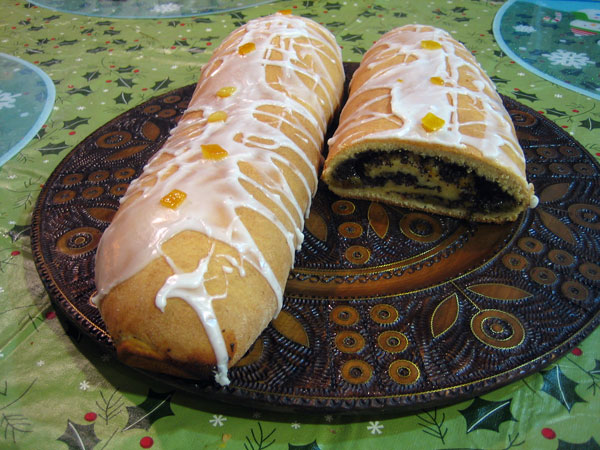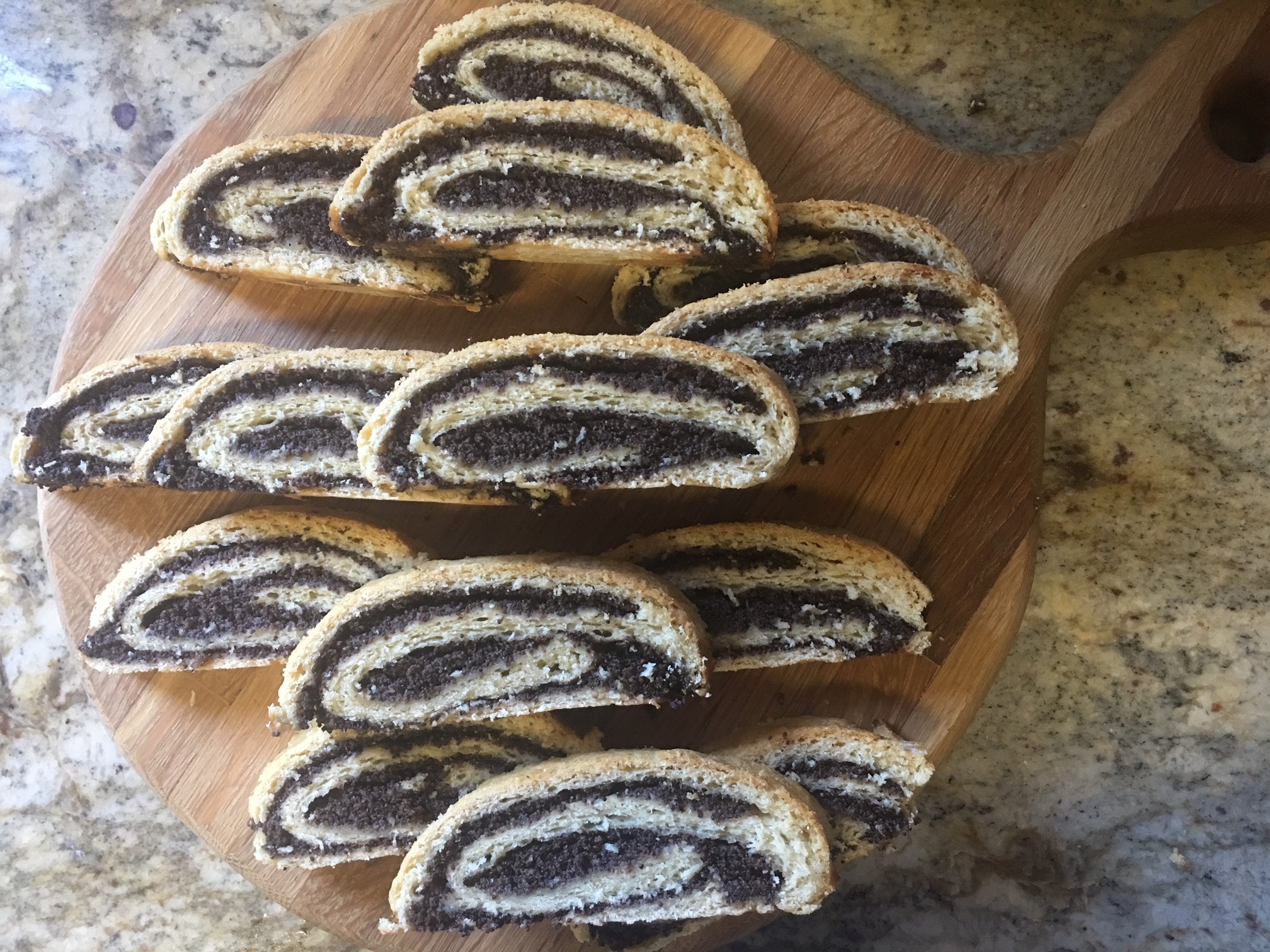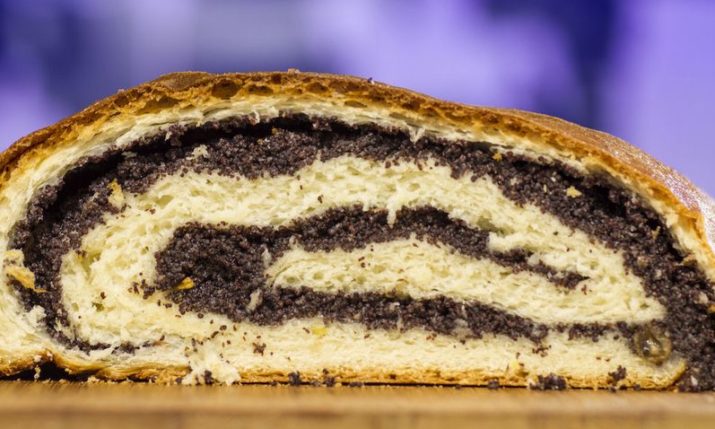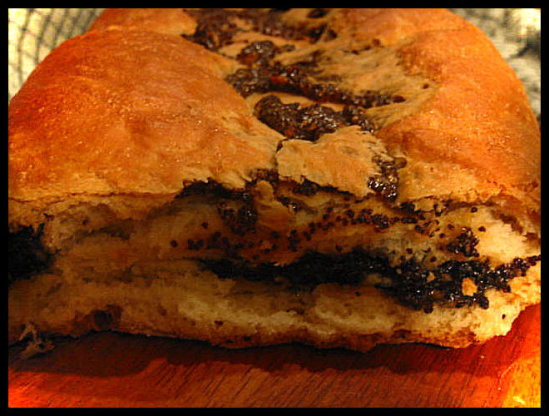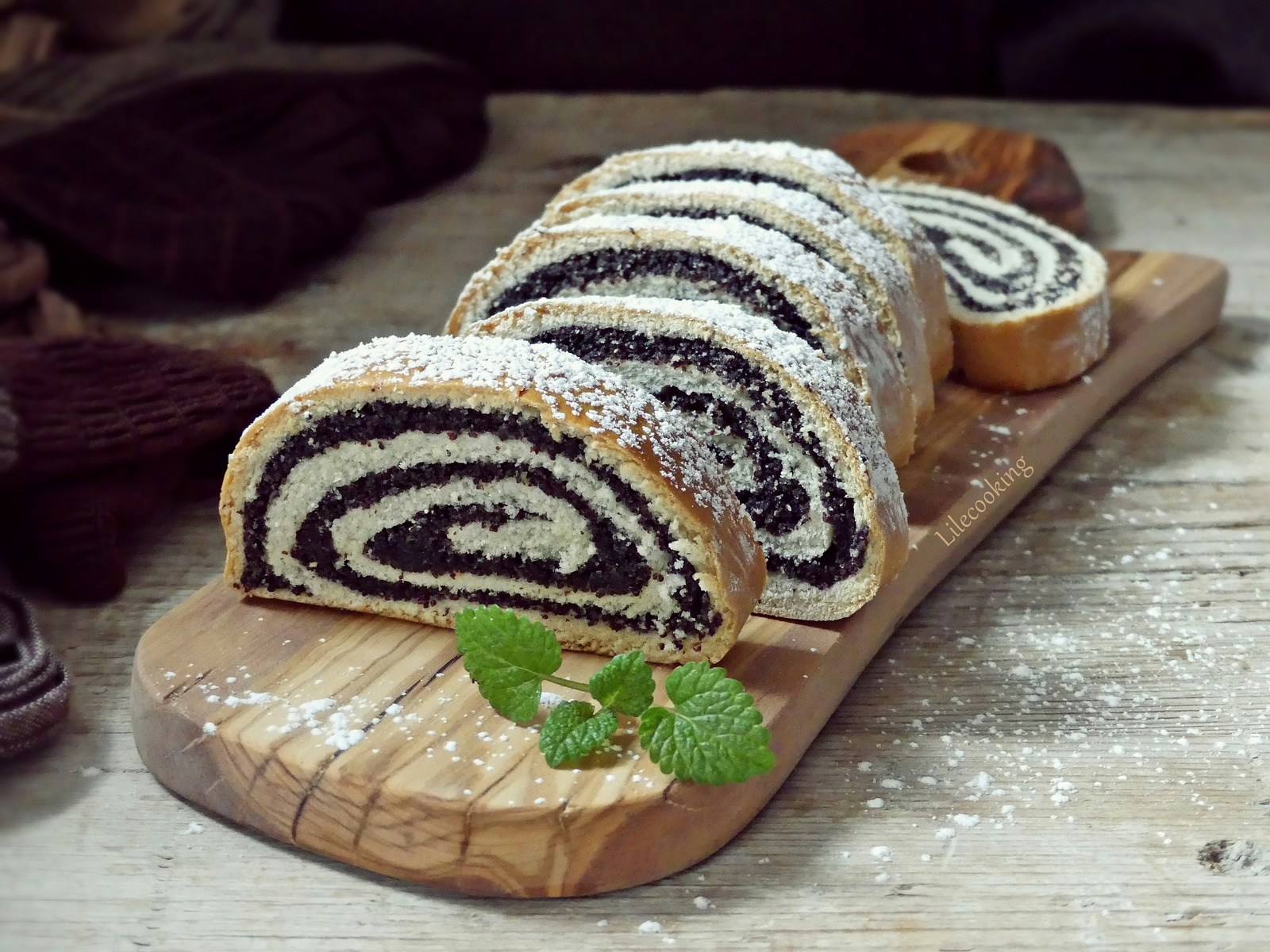Makovník
makovnik, makovník a orechovník, makovnik a orechovnik, poppy seed roll
The poppy seed roll is a pastry consisting of a roll of sweet yeast bread with a dense, rich, bittersweet filling of poppy seed. An alternative filling is a paste of minced walnuts, or minced chestnuts. It is popular in Central Europe and parts of Eastern Europe, where it is commonly eaten at Christmas and Easter time. It is traditional in several cuisines, including Polish (strucla z makiem, strucla makowa; poppy seed cake = makowiec), Kashubian (makówc), Hungarian (mákos bejgli), Slovak (makovník), Czech (makový závin), Austrian (Mohnbeugel, Mohnstrudel or Mohnstriezel), Ukrainian (pyrih z makom пирiг з маком or makivnyk маківник), Belarusian (makavy rulet макавы рулет), Bosnian, Croatian and Serbian (makovnjača or štrudla sa makom), Slovenian (makova potica), Romanian (coardă cu mac), Russian (rulet s makom рулет с маком), Lithuanian (aguonų vyniotinis), Latvian (magonmaizite), German (Mohnstrudel), and Yiddish (mohn roll). There are two different doughs used, one with yeast and one without. They dough is made of flour, sugar, egg yolk, milk or sour cream and butter, and yeast. The dough may be flavored with lemon or orange zest or rum. The poppy seed filling may contain ground poppy seeds, raisins, butter or milk, sugar or honey, rum and vanilla. Sometimes apricot jam, which is one of the most popular jams used in Hungarian cuisine, is substituted for sugar. There is another similar dish called walnut roll or nut roll, which contains a filling of ground walnuts and sugar, optionally enriched with raisins, rum, butter or milk and/or lemon zest. This filling may be spiced with cinnamon, nutmeg, clove or vanilla.
Source: Wikipedia
Recipes

Povitica - Croatian Sweet Walnut Chocolate Bread
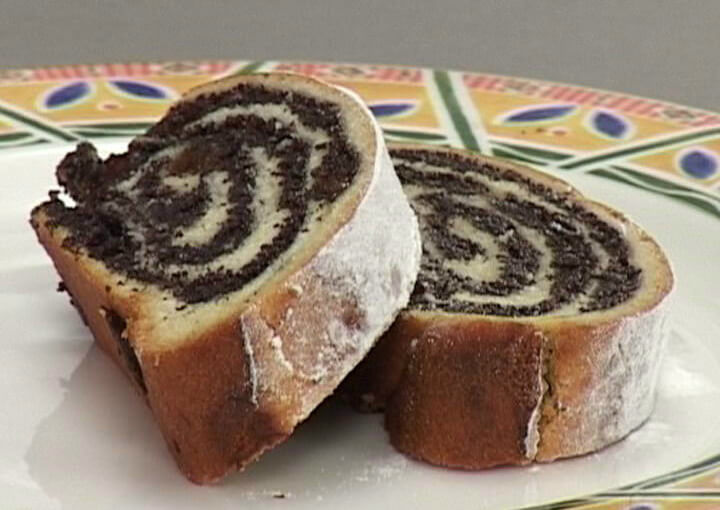


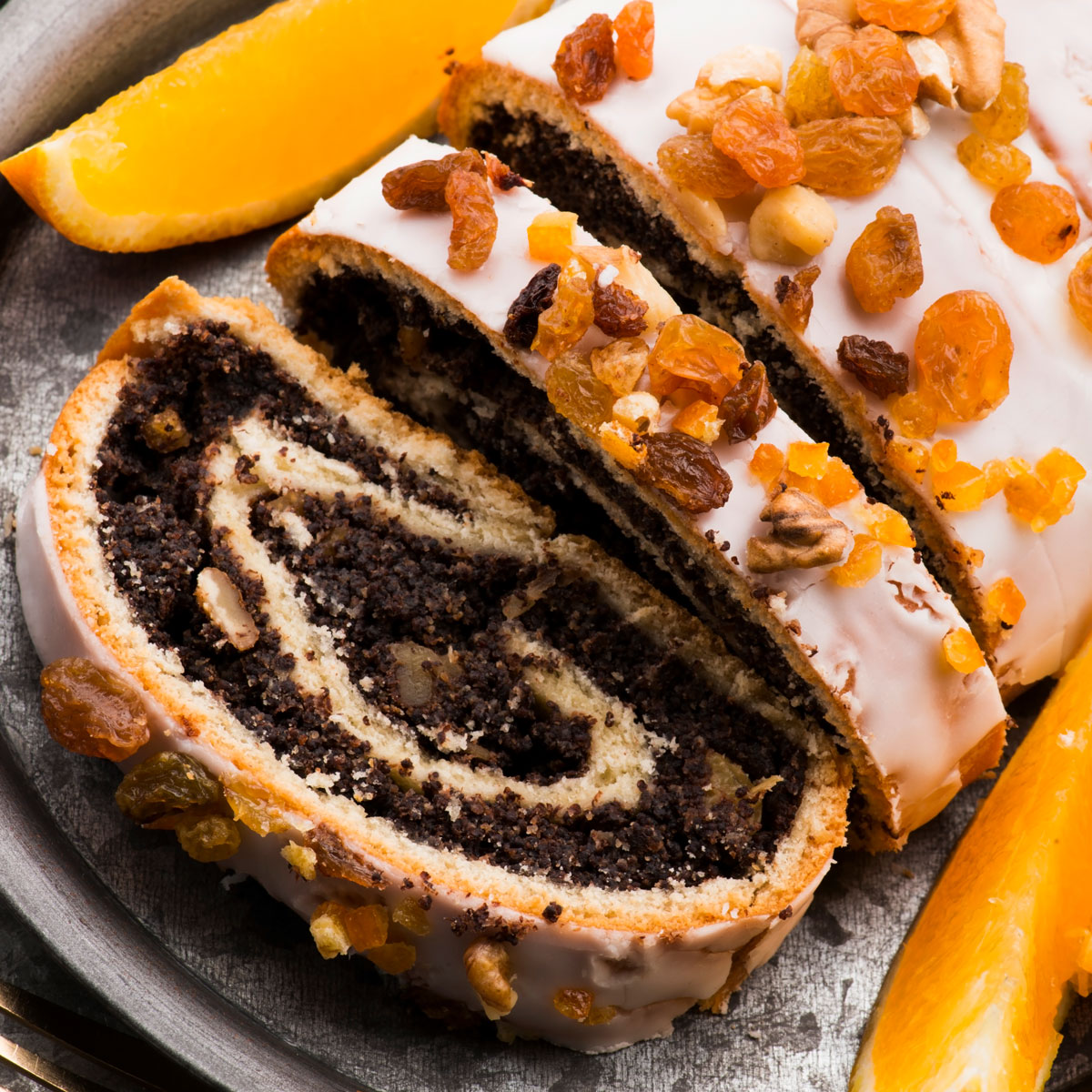
:max_bytes(150000):strip_icc()/polish-poppy-seed-roll-recipe-makowiec-1136412-hero-01-7fbbcafd25044411b2a9b871db32380b.jpg)

